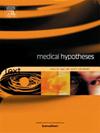Gut microbiota as a potential mechanism besides ketone bodies in Ameliorating Parkinson’s disease symptoms with the ketogenic diet
IF 2.1
4区 医学
Q3 MEDICINE, RESEARCH & EXPERIMENTAL
引用次数: 0
Abstract
Current research indicates that the ketogenic diet effectively alleviates symptoms in Parkinson’s disease (PD) patients, presenting a promising novel therapy. The prevailing view attributes the ketogenic diet’s efficacy in PD improvement to ketone bodies. Studies in epilepsy have demonstrated that the ketogenic diet improves epilepsy by modulating gut microbiota. Inspired by this, we hypothesize that the gut microbiota mediates the ketogenic diet’s alleviation of PD symptoms. On one hand, evidence from epilepsy and Alzheimer’s research supports the ketogenic diet’s influence on gut microbiota. On the other hand, PD studies indicate that gut microbiota can influence PD progression. Potential mechanisms may involve the production of neuroprotective metabolites, the modulation of the brain-gut microbiota axis, and the reduction of pathological protein aggregation. This hypothesis can be tested through animal models or clinical experiments. If validated, it could strongly support the widespread application of ketogenic diet therapy in PD and signify gut microbiota as a target for PD treatment, fostering simple and effective therapeutic approaches.
求助全文
约1分钟内获得全文
求助全文
来源期刊

Medical hypotheses
医学-医学:研究与实验
CiteScore
10.60
自引率
2.10%
发文量
167
审稿时长
60 days
期刊介绍:
Medical Hypotheses is a forum for ideas in medicine and related biomedical sciences. It will publish interesting and important theoretical papers that foster the diversity and debate upon which the scientific process thrives. The Aims and Scope of Medical Hypotheses are no different now from what was proposed by the founder of the journal, the late Dr David Horrobin. In his introduction to the first issue of the Journal, he asks ''what sorts of papers will be published in Medical Hypotheses? and goes on to answer ''Medical Hypotheses will publish papers which describe theories, ideas which have a great deal of observational support and some hypotheses where experimental support is yet fragmentary''. (Horrobin DF, 1975 Ideas in Biomedical Science: Reasons for the foundation of Medical Hypotheses. Medical Hypotheses Volume 1, Issue 1, January-February 1975, Pages 1-2.). Medical Hypotheses was therefore launched, and still exists today, to give novel, radical new ideas and speculations in medicine open-minded consideration, opening the field to radical hypotheses which would be rejected by most conventional journals. Papers in Medical Hypotheses take a standard scientific form in terms of style, structure and referencing. The journal therefore constitutes a bridge between cutting-edge theory and the mainstream of medical and scientific communication, which ideas must eventually enter if they are to be critiqued and tested against observations.
 求助内容:
求助内容: 应助结果提醒方式:
应助结果提醒方式:


